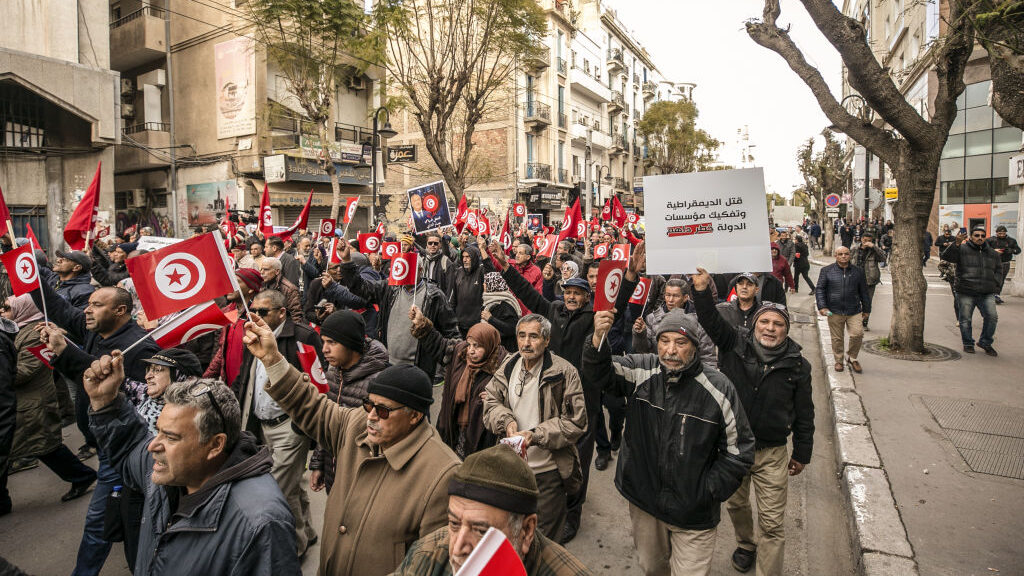Over 1,000 Protest in Tunis, Accuse President Saied of ‘Authoritarian’ Rule
At least 1,000 Tunisians rallied in the capital on Saturday, pressing for the release of jailed political prisoners and accusing President Kais Saied of steering the country toward authoritarian rule. The march, organized under the theme “Against Injustice,” drew a mix of families of detainees, veteran activists, and citizens angered by what they describe as an erosion of political freedoms.
Crowds filled central Tunis carrying signs, many dressed in black and chanting slogans that challenged the president’s leadership. Demonstrators shouted, “The people want to overthrow the regime,” “What a great country! Oppression and tyranny!” and “No fear no terror, the street belongs to the people.” Organizers estimated the turnout at more than a thousand people.
Saturday’s rally unfolded during a broader wave of unrest across the country. Earlier in the week, journalists protested restrictions on the press and voiced opposition to the suspension of several civil society groups. Economic pressures and political tensions have fueled additional demonstrations, including environmental protests in Gabes linked to the phosphate industry.
Give the gift of hope
We practice what we preach:
accurate, fearless journalism. But we can't do it alone.
- On the ground in Gaza, Syria, Israel, Egypt, Pakistan, and more
- Our program trained more than 100 journalists
- Calling out fake news and reporting real facts
- On the ground in Gaza, Syria, Israel, Egypt, Pakistan, and more
- Our program trained more than 100 journalists
- Calling out fake news and reporting real facts
Join us.
Support The Media Line. Save democracy.


Several detainees have begun hunger strikes, including constitutional law expert Jawher Ben Mbarek, now more than 20 days into his protest.
Human rights organizations say the crackdown is expanding, citing more than 50 arrests or prosecutions since late 2022 targeting politicians, lawyers, journalists, and activists. They warn that Tunisia’s anti-terrorism and cybercrime laws are increasingly used to punish dissent and curtail free expression.
Saied, who suspended parliament and assumed sweeping powers in July 2021, maintains that his actions are necessary to confront corruption, remove what he calls “traitors,” and restore the proper functioning of state institutions.

